User Research
Libraries are impacted by the ways in which individuals engage with technology; how they seek, access, contribute, and use information; and how and why they demonstrate these behaviors and do what they do. We're collaborating with librarians to shape their services around a set of expectations that have been influenced by consumer technologies and modern research and learning environments. By providing the library community with behavioral evidence about individuals’ perceptions, habits, and requirements, we can ensure that the design of future library services is all about the user. Our efforts are amplified by strategic partnerships and focus in these two areas:
Publications
Narrow by
-
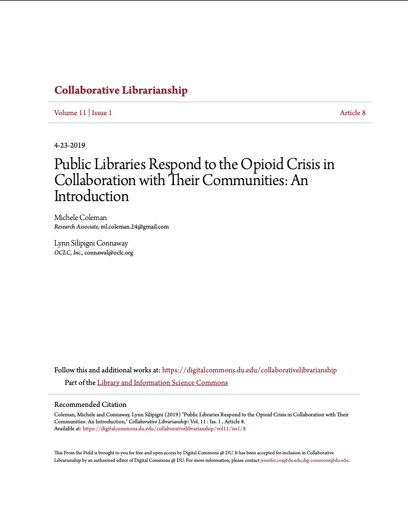
Public Libraries Respond to the Opioid Crisis in Collaboration with Their Communities: An Introduction
27 April 2019
Michele Coleman, Lynn Silipigni Connaway
OCLC is partnering with the Public Library Association on the Public Libraries Respond to the Opioid Crisis with Their Communities project to identify, synthesize, and share knowledge and resources with public libraries to develop effective strategies to address the opioid epidemic in America.
-
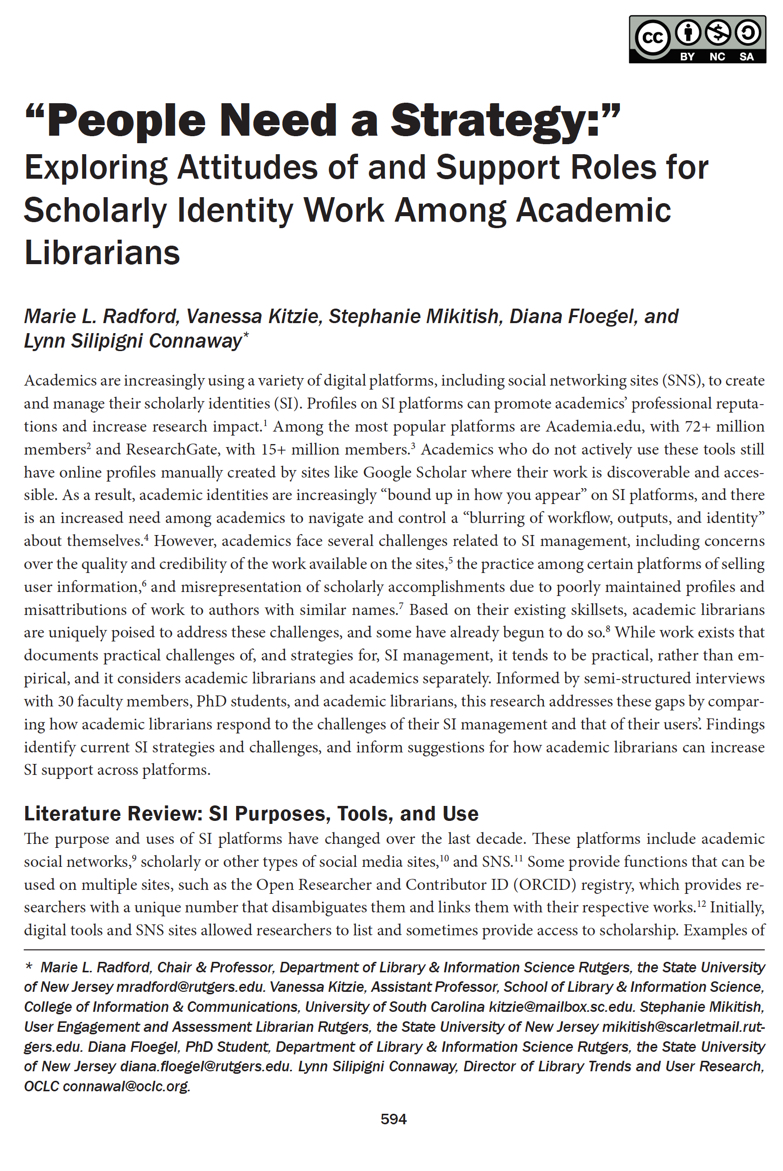
'People Need a Strategy:' Exploring Attitudes of and Support Roles for Scholarly Identity Work Among Academic Librarians
10 April 2019
Marie L. Radford, Vanessa Kitzie, Stephanie Mikitish, Diana Floegel, Lynn Silipigni Connaway
Academics increasingly use digital platforms and social networking sites to manage their scholarly identities (SI). This empirical study proposes that academic librarians can assist in digital SI management and identifies strategies for librarians to increase SI support across platforms.
-
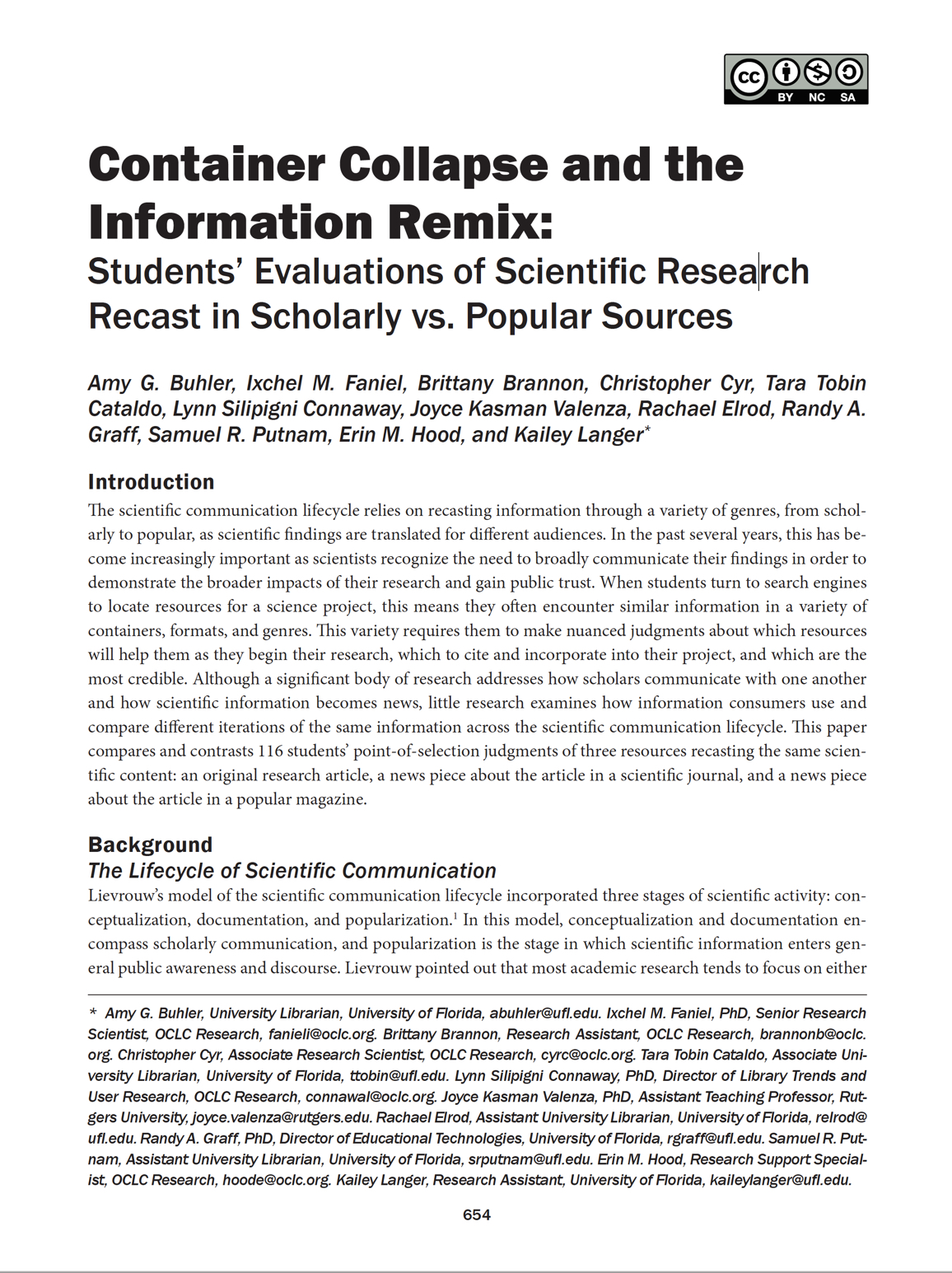
Container Collapse and the Information Remix: Students’ Evaluations of Scientific Research Recast in Scholarly vs. Popular Sources
10 April 2019
Amy G. Buhler, Ixchel M. Faniel, Brittany Brannon, Christopher Cyr, Tara Tobin Cataldo, Lynn Silipigni Connaway, Joyce Kasman Valenza, Rachael Elrod, Randy A. Graff, Samuel R. Putnam, Erin M. Hood, Kailey Langer
A scientific communication life cycle publishes results in a variety of containers, formats, and genres to reach diverse audiences. This paper examines 116 students’ selection of scholarly and popular scientific content to compare how consumers use resources across the communication life cycle.
-
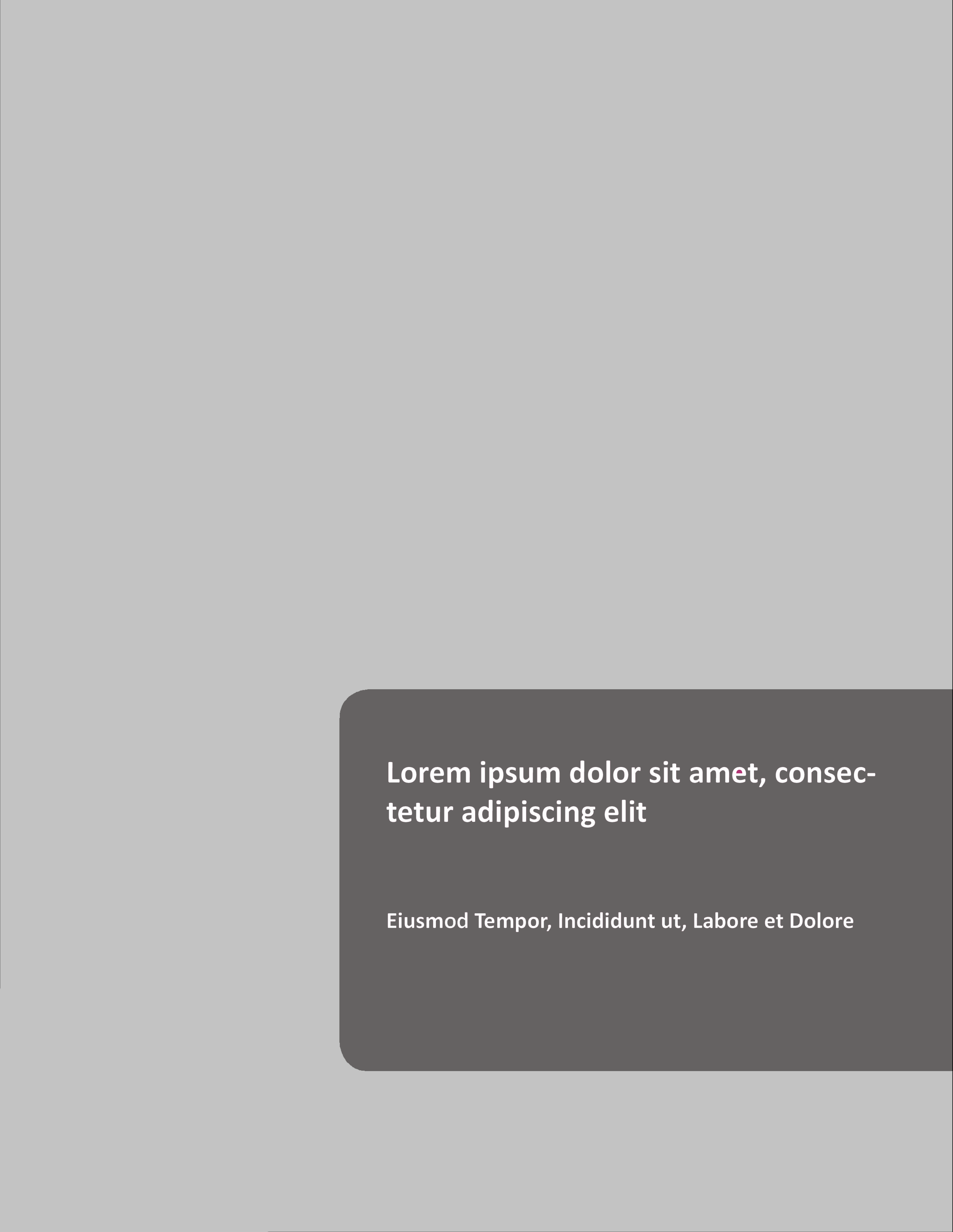
Investigating Practices for Building an Ethical and Sustainable Scholarly Identity with Online Platforms and Social Networking Sites
1 February 2019
Marie L. Radford, Vanessa Kitzie, Stephanie Mikitish, Diana Floegel, Gary P. Radford, Lynn Silipigni Connaway
Informed by 30 semi‐structured interviews with faculty, Ph.D. students, and academic librarians, this exploratory research examines how individuals create, cultivate, and manage their scholarly identity (SI) using online platforms.
-
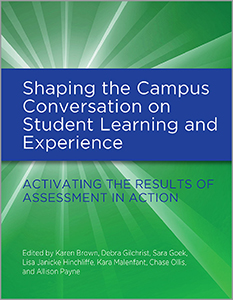
Assessing for Alignment: How to Win Collaborators and Influence Stakeholders
22 June 2018
Stephanie Mikitish, Vanessa Kitzie, Lynn Silipigni Connaway
This chapter, excerpted from Shaping the Campus Conversation on Student Learning and Experience, proposes how academic libraries can leverage the Assessment in Action: Academic Libraries and Student Success (AiA) approach to advance communication, collaboration, and institutional mission and alignment.
-
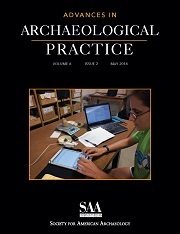
Beyond the Archive: Bridging Data Creation and Reuse in Archaeology
3 May 2018
Ixchel Faniel, Anne Austin, Eric Kansa, Sarah Whitcher Kansa, Phoebe France, Jennifer Jacobs, Ran Boytner, and Elizabeth Yakel
The Secret Life of Data (SLO-data) project traces the lifecycle of data in archaeology to make recommendations to improve data management and better align data creation and reuse. It proposes a “slow data” approach to emphasize curation, contextualization, and communication to streamline data collection for reuse.
-
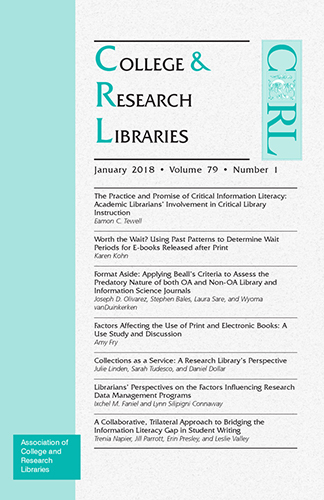
Librarians' Perspectives on the Factors Influencing Research Data Management Programs
9 January 2018
Ixchel Faniel, Lynn Silipigni Connaway
This study contextualizes librarians’ roles in campus research data management (RDM) programs at US academic libraries through their RDM experiences supporting research needs. Interviews with academic librarians surfaced five factors of influence that facilitate or constrain academic library RDM activity.
-

Reordering Ranganathan: Shifting User Behaviors, Shifting Priorities
30 June 2014
Lynn Silipigni Connaway, Ixchel Faniel

